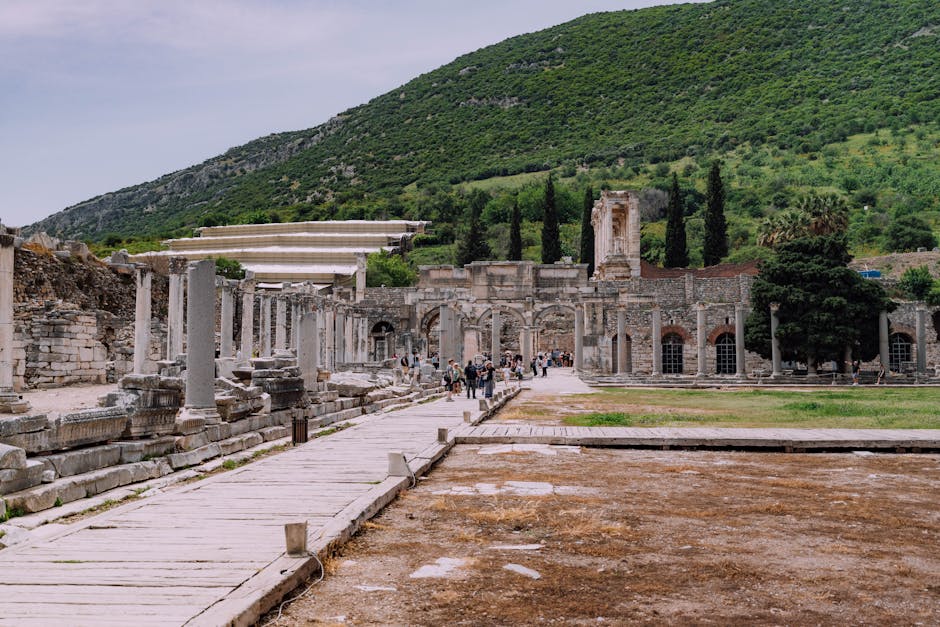Disease outbreaks have been a persistent and profound force throughout human history, leaving indelible marks on societies, economies, and the very trajectory of civilizations. From ancient plagues to modern pandemics, sickness has acted as a powerful catalyst, reshaping political landscapes, altering social structures, and driving technological innovation. This examination delves into the multifaceted ways in which disease outbreaks have shaped the human story, exploring their historical and archaeological implications.
A pivotal understanding of human history hinges on recognizing the role of illness. The impact of infectious diseases on early settlements and the rise of agricultural societies cannot be underestimated. Early agricultural practices, with their close proximity to animals and limited sanitation, fostered environments ripe for disease transmission. Archaeological evidence, in the form of skeletal remains, offers glimpses into past health crises. Bone lesions, tooth decay, and patterns of infant mortality, when analyzed alongside environmental data, can provide a compelling picture of the infectious pressures impacting these populations. For instance, the remains discovered in settlements of the Neolithic period often reveal evidence of malnutrition and infectious diseases, suggesting that population density and new dietary habits contributed significantly to these health challenges. These early episodes provide a crucial baseline for comparing subsequent outbreaks and appreciating the long-term impact of disease.
The classical era witnessed outbreaks that significantly altered the course of empires. A prime example is the Antonine Plague, which devastated the Roman Empire in the 2nd century CE. While the exact pathogen remains uncertain, historical accounts from writers like Galen describe a devastating illness characterized by fever, skin eruptions, and neurological symptoms. This epidemic weakened the empire’s military strength, destabilized its economic foundations, and contributed to political instability, highlighting the interconnectedness between health and societal stability. Archaeological evidence from Roman settlements such as elevated mortuary rates and changes in burial practices offers corroboration for the historical accounts, illustrating the tangible consequences of the plague on communities. The societal response, encompassing attempts at quarantine and medical interventions, also provides a window into the evolving understanding of disease at the time.
The medieval period was particularly marked by the scourge of the Black Death, a bubonic plague pandemic that swept across Eurasia in the mid-14th century. This catastrophe had an unprecedented demographic impact, drastically reducing European populations and profoundly reshaping social structures. Skeletal remains found in plague cemeteries, with distinctive characteristics like the presence of the buboes, provide unambiguous evidence of this devastating event. The Black Death, moreover, led to a profound reassessment of religious beliefs, social hierarchies, and economic systems. The profound loss of life led to a restructuring of labour markets, inspiring the creation of new guilds and pushing for social change.
Throughout history, disease outbreaks have also stimulated advancements in medicine and public health practices. The great plagues, such as the 17th-century London plague, fostered the development of quarantine measures and improvements in sanitation systems. Observations of the disease’s spread, coupled with practical measures like isolating individuals and improving living conditions, began to form a rudimentary understanding of contagion and disease transmission. The meticulous recording of epidemic patterns, often by physicians and public health officials, contributed to the gradual evolution of public health initiatives. These recorded observations, complemented by the archaeological evidence of sanitation systems and quarantine measures, demonstrate the complex feedback loop between disease and societal development.
The emergence of new diseases, coupled with globalization, has had an equally profound impact on the modern world. The 20th and 21st centuries have witnessed outbreaks of influenza, HIV/AIDS, and more recently, COVID-19. Each of these events has triggered global responses, forcing governments to grapple with issues of public health, resource allocation, and economic stability. The historical context of past disease outbreaks provides valuable insights into navigating contemporary crises, and contemporary analyses of these events provide significant opportunities for a refined understanding of our past. Tracing the paths of infectious diseases across continents and through centuries unveils a remarkable narrative of human resilience, adaptability, and the persistent struggle to mitigate the effects of illness on societies.
Further investigation into the archaeological record focusing on the intricate relationship between disease, environment, and human behaviour reveals important aspects. For example, studies of past climate change offer insights into how environmental shifts might have influenced the spread of diseases, while dietary analyses can reveal links between food availability and vulnerability to infectious diseases. The interactions between pathogens, populations, and the environment offer a richer, more nuanced understanding of how disease shaped past societies. This holistic approach underscores the interdependence of human history and the history of disease, a crucial element of our understanding of the human story.
In summary, a thorough examination of human history cannot overlook the significant role of disease outbreaks. From early settlements to modern pandemics, disease has shaped not just the physical and demographic trajectory of societies but also their social, political, and economic landscapes. The historical and archaeological record offers valuable insights into the processes of disease transmission, societal responses, and the impact of epidemics on human populations and our trajectory. By understanding how sickness shaped the past, we can gain a more profound appreciation for the challenges and triumphs of our shared human experience.
